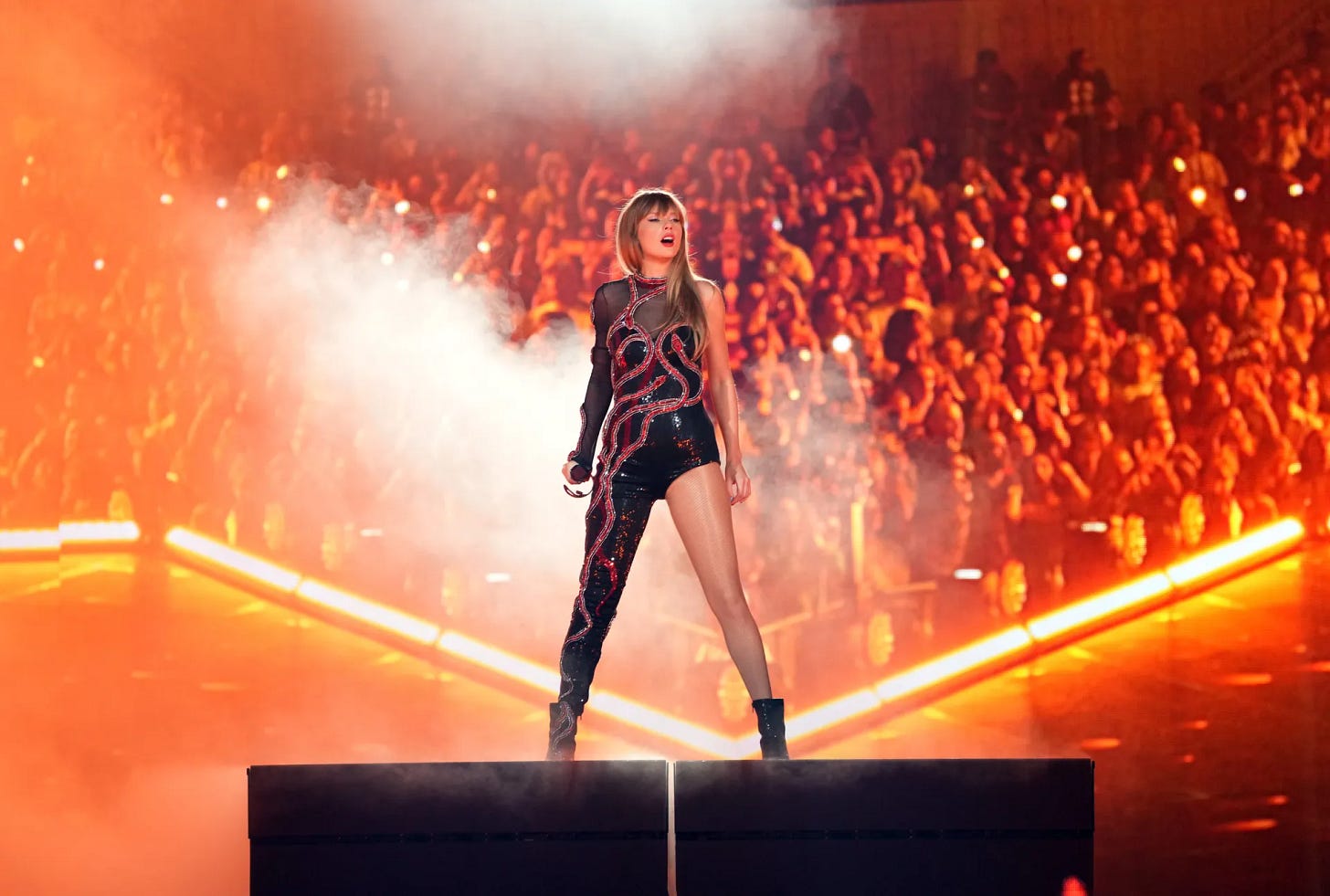Taylor Swift and the Triumph of Liberalism
Liberal Soft Power is Fucking Back
Getty Images
In the same way The Beatles, with their overwhelming cultural power, once punched a hole in the Iron Curtain and inspired dissidents, Taylor Swift has emerged as a cultural lodestar for universalist global liberalism against reactionary nationalist projects.
There was at one point a palpable sense from across the political spectrum during the COVID years that the Right was seizing the moment, and liberalism could no longer inspire mass political support. The world would continue to fracture as former liberal democracies would backslide into Orbán-style nationalist populism that would slam shut the doors opened during the 20th century. The sky itself often seemed like it was falling.
The Eras Tour has proven much of this commentary to be utter nonsense. Contrary to expectations, the world did not become insular, and the spirit of global popular culture remains as vibrant as ever.
Multiple Heads of State have personally asked Taylor Swift to bring her tour to their countries. Hell, even the mayor of Budapest for the opposition party in Hungary was asking for her to add Budapest to her tour. The response from actual Swifties worldwide has been so fanatical that there’s now a deluge of articles about her concerts causing amnesia.
What I’m getting at here is that from Philadelphia to Japan, Taylor Swift’s influence isn’t just merely someone famous going on tour it’s an actual cultural event. I think CHVRCHES is a great band—but Jerome Powell isn’t commenting on their concerts for having such an outsized economic impact it’s a sign of the strength of the American economy.
It’s important to mention here that Taylor Swift is also an openly liberal artist. She’s vocally come out in support of abortion rights, LGBTQ rights, and has routinely endorsed various Democratic candidates including President Biden. It’s the aspirational and optimistic form of liberalism that mobilizes mass groups together in a shared vision of a better world.
I also think it’s relatively uncontroversial for me to assert that her fans largely embrace her as a symbolic representation of her form of liberal feminism.
One only has to look to the discourse around her former relationship with Matty Healy for evidence of the (in this case extremely parasocial) association that her fanbase has with her in an ideological sense. The outpouring of anger directed toward her for this relationship shows just how directly she’s transformed into a figure representing the political aspirations of her fanbase outside of her public status as merely an artist.
To be a Swiftie at this point also implies a certain set of political tendencies.
I say all of this just to come back to how much of a cultural event the Eras Tour is. It’s not just that they’re large concerts. They reflect an internationalist spread of liberal ideology. In Japan, Germany, and Philadelphia; Taylor Swift is drawing massive crowds dedicated to a similar vision of the world.
It’s not simply just that the city of Philadelphia’s economy is getting the equivalent of a mass stimulus check from a concert either—it’s that there is such an outpouring of fanaticism from her fans that share a certain vision of the world that an entire city’s economy grows.
The various nationalist movements that have positioned themselves as being contra liberalism over the past few years have made the claim that they’ve constructed an alternate ordering of the world. Their vision is in large part driven by a belief that their respective domestic populations were more than happy to give up on a supposedly corrosive international (particularly American) culture for their own highly nationalistic projects.
Despite their efforts, the conservative movements have failed to achieve any significant cultural success. The closest conservatives have come to a popular success has been the recent film Sound of Freedom that’s generated 140 million dollars at the box office.
The Eras Tour, in contrast, has generated an economic impact of 4.6 billion dollars for the American economy alone—a figure larger than the GDP of almost 50 countries. If this is what the Culture Wars actually look like in practice, the conservative cause is faring about as well as the Iraqi Army did in the 1991 Gulf War.
Rusty Reno of First Things once called the coming years as being a period defined by the Return of the Strong Gods. The good news is that it turns out that in the end, his Strong Gods of Nationalism can’t even fight off a pop star.

